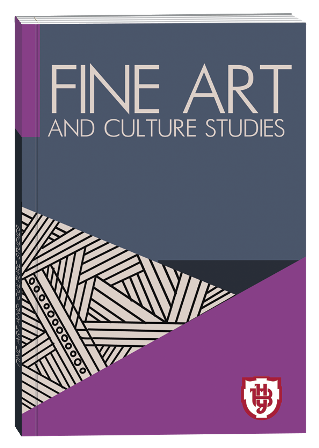THE TRANSFORMATION OF MYTHOLOGY IN VIDEO GAMES
DOI:
https://doi.org/10.32782/facs-2023-5-10Keywords:
cultural studies, culture, digital culture, mythology, myth, myth transformation, video game, virtual realityAbstract
The purpose of the article is to investigate the processes of transformation of mythology under the influence of digitalization (virtual reality). The research methodology is based on the application of an analytical method that reveals the specifics of the transformation of mythology in virtual space through the prism of man and technology. The scientific novelty of the obtained results lies in the analysis of mythology and its transformation in video games. The use of important elements of mythology and means of expression of video games, which immerse in to the atmosphere and universe of the video game, is followed. It is assumed that the use of mythology in the virtual space is a certain cultural experience that makes the recipient interested in the original source of mythological stories. Analyzing mythology and video games, the author made the conclusion that these two spheres that interact and complement each other. Mythological themes and characters are often used to create fascinating worlds in video games, thereby influencing the popularization and revival of this field among people who may become interested in researching traditional myths and legends. In some video games, certain elements of mythology are used and combined. In larger projects, mythology is the basis of the creation of the virtual world, so its reflection is as accurate as possible according to the original source. Mythology is a combination of a traditional myth with the imagination of developers, which makes it possible to create new unique virtual worlds. The virtual universe in video games is mostly fictional, so there is not always a complete and accurate reflection of the systems of mythology, so there is another side to the transformation of the myth. Players can get a distorted view of the mythology.
References
Волинець В. О. Інтеграція віртуальної та доповненої реальності у мистецтво. Культура і сучасність : альманах. 2021. Вип. 1. С. 9–16.
Журба М. А. Віртуальна реальність: передумови антропологічного повороту. Гілея: науковий вісник. 2013. Вип. 72. С. 306–311.
Малюк Є. О. Особливості відеогри як медіа. Актуальні проблеми історії, теорії та практики художньої культури. 2016. Вип. 37. С. 71–78.
Маренич Н. А. Відеогра – мистецтво на стику постмодернізму та пост постмодернізму. Вісник ХДАДМ. 2013. Вип. 3. С. 13–17.
Пількевич А. Л. Структура відображення історико-міфологічних образів у відеоіграх MMORPG у жанрі фентезі. Наукове видання Київського національного університету імені Тараса Шевченка. Етнічна історія народів Європи. 2019. Вип. 59. С. 104–107.
Старкова Г. В. Віртуальні розваги як предмет історико-культурних рефлексій. В пошуках відправної точки. Вісник ХДАДМ. 2012. Вип. 14. С. 64–66.
Attebery, B. (2014). Stories about Stories: Fantasy and the Remaking of Myth. Oxford : Oxford University Press. 256 p.
Campbell, J. (1990). The Transformations of Myth Through Time. New York HarperCollins. 272 p.
Campbell, J. (1988). The Power of Myth. New York: Doubleday. 543 p.
Griffiths, M. D., Lewis, A. M., De Gortari, A. B. O., Kuss, D. J. (2014). Online forums and solicited blogs: innovative methodologies for online gaming data collection. Studia Psychologia. Vol. 14(3). Pp. 5–24.
Schelling, F. W. J. von. (1989). The Philosophy of Art (Ed. Douglas W. Stott, David Simpson). University of Minnesota Press. 342 p.







